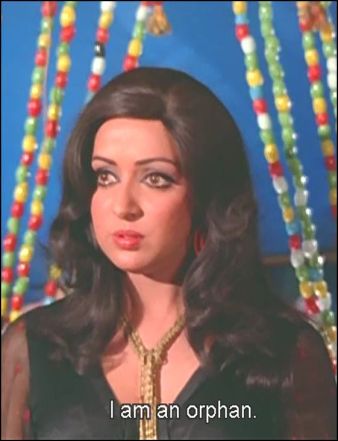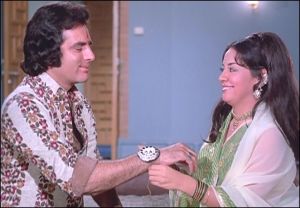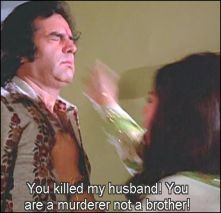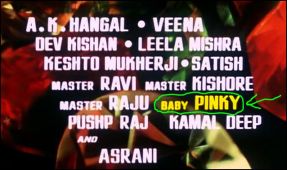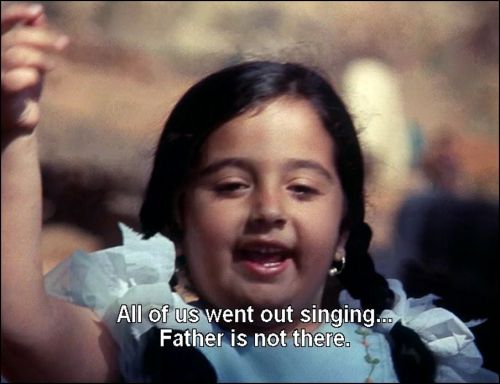This is my contribution to Roti Kapada aur Rum’s international call to all Indian film bloggers to submit something for Shameful Classics celebration in July, 2011. After I saw Pardes (1997) last year I was very enthused about it, yet nearly every NRI I spoke to, emailed, or tweeted about it said how much they disliked the film.  I adored Pardes, maybe because as a gori I’m free of the cultural shame some NRIs have over Bollywood films, so when Shameful Classics month came up, I figured it’s time to do a post on this insane film, after all I loved the film so much I practically screen capped it all! In fact, if you scroll quickly over this post it will look like a flip book of the movie, THAT’S how many screen caps there are. So I suppose at minimum I should be ashamed of adding to internet pollution. One of best parts of doing this blog is being able to rave about a movie that most of you saw years back that I’m just discovering now. As I said, I LOVED this movie, but then again I tend to love all Subash Ghai films for their kitsch value and dramatic plot twists. Glancing over Ghai’s filmography, I’ve seen and enjoyed all of these, Vishwanath (1978); Karz (1980); Krodhi (1981); Meri Jung (1985); Ram Lakhan (1989); Khalnayak (1993); Trimurti (1995) (producer); Taal (1999); Aitraaz (2004) (producer); Kisna: The Warrior Poet (2005); Iqbal (2005) (producer); Black & White (2008); and with time I’ve even remembered Yuvvraaj (2008) as resonating as a fun film, especially when Katrina’s character says something like , “You’re 100% complete anti-family hai!” to Salman’s character. Remember that?! I LOVED that! So is it possible that Ghai’s my favorite Bollywood director? Should I be ashamed? Let’s continue on with Pardes!
I adored Pardes, maybe because as a gori I’m free of the cultural shame some NRIs have over Bollywood films, so when Shameful Classics month came up, I figured it’s time to do a post on this insane film, after all I loved the film so much I practically screen capped it all! In fact, if you scroll quickly over this post it will look like a flip book of the movie, THAT’S how many screen caps there are. So I suppose at minimum I should be ashamed of adding to internet pollution. One of best parts of doing this blog is being able to rave about a movie that most of you saw years back that I’m just discovering now. As I said, I LOVED this movie, but then again I tend to love all Subash Ghai films for their kitsch value and dramatic plot twists. Glancing over Ghai’s filmography, I’ve seen and enjoyed all of these, Vishwanath (1978); Karz (1980); Krodhi (1981); Meri Jung (1985); Ram Lakhan (1989); Khalnayak (1993); Trimurti (1995) (producer); Taal (1999); Aitraaz (2004) (producer); Kisna: The Warrior Poet (2005); Iqbal (2005) (producer); Black & White (2008); and with time I’ve even remembered Yuvvraaj (2008) as resonating as a fun film, especially when Katrina’s character says something like , “You’re 100% complete anti-family hai!” to Salman’s character. Remember that?! I LOVED that! So is it possible that Ghai’s my favorite Bollywood director? Should I be ashamed? Let’s continue on with Pardes!
Pardes, meaning “foreign land”, is a story that revolves around Ganga (Mahima Chaudhary). She is an Indian girl living in a rural village, brought up by her conservative family. Kishorilal (Amrish Puri) is a wealthy and successful businessman who lives in Los Angeles, America but is still deeply attached to his motherland India and adores the values and culture of India. On a visit to India, he meets his old friend Suraj Dev (Alok Nath) and stays at his house. During his stay he gets to know Suraj Dev’s family and becomes very attached to Ganga, Dev’s eldest daughter, who is the epitome of Indian culture. He hopes to find an Indian girl for his westernized, American son, Rajiv (Apoorva Agnihotri) and feels that Ganga is just right. He offers a marriage proposal between Ganga and Rajiv; Dev’s family accepts. Kishorilal knows he will have a tough time trying to convince Rajiv, who has never even visited India. But Kishorilal has a plan. He sends his foster son, Arjun (Shahrukh Khan) (‘Little Master’), to play cupid and convince Rajiv to visit India and meet and approve of Ganga. Arjun arrives at Dev’s house and makes changes and arrangements to make the place suitable for Rajiv. Rajiv joins him in a few days and initially does not like the idea. Arjun spends many days trying to get Ganga and Rajiv to like each other and, in the process, becomes a close friend of Ganga. Eventually Rajiv and Ganga agree to the wedding….(source)
Pardes (1997) is one of those America is bad for the India soul films, but unlike the more recently released MNIK, Pardes simple “America’s evil culture is bad, and India and its people are good,” theme didn’t bother me at all. Perhaps this is because America was played a lot of the time by Canada, (Vancouver) in Pardes, and the places where innocent beautiful bride Ganga ( Mahima Chaudhry) does show up in the USA are really not so chaste, such as Las Vegas, aka sin city.


So let’s begin the tale of Pardes in India, where everything is good, see:

Those are the words of Amrish Puri’s character, Kishorilal, the typical NRI rich industrialist living in Ameerika who travels back to Hindustan to keep in touch with his roots and meet with childhood friends, like Alok Nath’s Suraj Dev. After some typically spectacular Indian hospitality, Kishorilal thinks, “I Love My India” and figures why not marry his fancy American-raised son to a pure woman of India, Suraj’s beti, Ganga!. Wouldn’t you do the same given the opportunity?

He returns to India to pitch this idea to his fancy son, Ragiv (Apurva Agnihoti), who is of course amoral having been raised in the USA. But how to soften this blow to Ragiv? How can a lad raised in the pure and constant luxury of America understand and accept India, a developing country?


How to solve this dilemma? Well as it turns out, Kishorlal has a quasi son, a pure hearted orphan named Arjun, played by Shahrukh Khan…
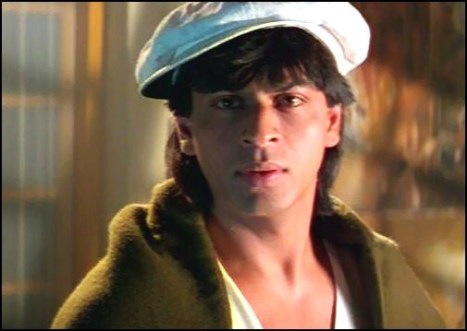
who’s grown to be both an accomplished auto mechanic, who runs a fancy garage, where he dances with his boyz in their off time
 and also manages to be an Asian Music Chart topper!
and also manages to be an Asian Music Chart topper!


See how humble Arjun is when being interviewed on a big radio show, even though he’s a chart topper? He’s from India, he’s a good man.
So Arjun escorts Rajiv over to India as his cultural attaché, which comes in handy when some village guy thinks he’s got a claim on bride-to-be Ganga and they decide to play a game of kabaddi to settle the score.


NRI Rajiv, is like Kabaddi? So this is where Arjun’s cultural attaché-ness comes in handy, he not only shows him how a mean game of kabaddi is played,
 but he shows how to play kabaddi to win the girl!
but he shows how to play kabaddi to win the girl!
I think I forgot the part where Ganga sees Arjun when he first arrives in India and thinks he’s cute before she ever sees Rajiv, so there’s that. Just keep that in the back of your mind for now for dramatic foreshadowing purposes only… Back to America, and Ganga is a bit shy upon arrival to this foreign land, for it’s so different from her beautiful India, but she’s not too shy to perform I Love My India in front of the masses at a function. Kishorilal begins to plan for the wedding and it’s clear that he’s been contaminated by his time in America, revealing his superficial materialism, which does not exist in India, right?
 Ganga is comforted by orphan to foster savior son, Arjun, who is there in
Ganga is comforted by orphan to foster savior son, Arjun, who is there in Canada America to soften the blow of culture shock. Rajiv is always busy with work and then while looking around the home, abandoned Ganga sees trashy gori and kali girl photos plastered on the walls, as well as dirty magazines and is rightfully concerned. What does it all mean? 
 Rajiv’s evil cousin helps to explain the morally bankrupt ways of America to innocent Ganga.
Rajiv’s evil cousin helps to explain the morally bankrupt ways of America to innocent Ganga.
Rajiv, Arjun, and Ganga go out to a party on a fancy yacht in the port of Los Angeles Vancouver one afternoon and there’s a scuffle, and while Rajiv is focusing on his own richi-rich status… he doesn’t even notice when some guys leer and grope on Ganga, but watchful Arjun does, and defends her honor.
he doesn’t even notice when some guys leer and grope on Ganga, but watchful Arjun does, and defends her honor. One night the same three all go to a disco, something new to Ganga. She’s shocked to see Rajiv is smoking,
One night the same three all go to a disco, something new to Ganga. She’s shocked to see Rajiv is smoking,  but Arjun to the rescue, explains away any concerns about this to Ganga:
but Arjun to the rescue, explains away any concerns about this to Ganga:
No worries, right? It’s only a bit of smoking, right? They go one to play some game at the disco called Prince & Princess Made in Heaven Contest which in all my time spent in American discos, I’ve never seen. Their compatibility is revealed in this game and they win! See how happy they are together?
Their compatibility is revealed in this game and they win! See how happy they are together?
See the cute statue they win in the leucite box? Alas, their happiness is fleeting because in the background Rajiv is getting drunk. 
But remember, Ganga is engaged to Ragiv, not Arjun, the man who’s maintained his pure Indian soul despite his long-term exposure to American culture. Rajiv having spent all his life in the USA is not so fortunate to have learned good Indian morals, and he gets drunk and Arjun helps remove him from a brawl.
So these warning signs are adding up: the smoking, the drinking, the bar fight, the fight on the yacht, the dirty magazines, and an ex-girlfriend with a gori name. Rajiv even abruptly tells Ganga one evening he’s going out with his girlfriend, which is sort of a red flag, hai na? Ganga is feeling reluctant about her upcoming marriage to Rajiv and seeks comfort in her friendship with Arjun. On Arjun’s birthday she brings him a cake and some balloons and hangs out with him at the garage with the boys while Rajiv is probably out somewhere with this Kelly. Ganga even brings their “Match Made in Heaven” statue to the party and Arjun’s wise friend is bit suspicious, remember, Ganga is Rajiv’s match, not Arjun’s match.
Ganga even brings their “Match Made in Heaven” statue to the party and Arjun’s wise friend is bit suspicious, remember, Ganga is Rajiv’s match, not Arjun’s match.
It’s Arjun’s wise friend (Pavan Malhotra), peering around some Bollywood balloons, who sees the love he has in his eyes for Ganga. Can you see it too?


Rajiv becomes a bit jealous of the friendship between Arjun and Ganga, tells his dad Kishorilal, who in an effort to keep Arjun away from Ganga, transfers him to another office very far from where they live now, which I tought was Vancouver posing as Los Angeles, but maybe it was really being Vancouver all along since he was sending Arjun away to Los Angeles, confusing.
In the meantime, Rajiv takes Ganga on a little trip to Las Vegas, corruption capital of America! There were plenty of gori extras, 

and for the first time in a Hindi film I saw kali extras too:
Up in the hotel, Rajiv wants to share a penthouse room with his Indian fiance, and “take things to the next level.” Ganga is pure, Ganga is not having that!







What’s so spectacular about this near rape hotel scene is that Rajiv insults Ganga, but it’s not until he makes disparaging remarks against India that she snaps! After the insults to India, the fight is on and she beats him up. I believe he does get one tight slap to the face in, but once Ganga is fired up, her rage for defending her mother India is unstoppable! She escapes after knocking him out, and as luck would have it, some of Arjun’s home boys catch wind of Ganga’s location at a truck stop near Las Vegas. Please note the brick phone, I didn’t take this screen cap for nothing!
Kishorilal and Rajiv put the rush on the wedding plans and plan to catch up with Ganga, who has now returned to her mother India with the help of Arjun, who rescued her from her peril in Las Vegas. Obviously Kishorilal goes nuts and demands to know how she disappeared from the Vegas hotel, and Rajiv, doesn’t say, “well, I tried to rape her and she knocked me out,” but instead lies:


If you’ve read this blog before, you may know that I have a small hobby with spotting Johnnie Walker bottles in Indian films, and this shot is the limit! Look at the slutty poster on the wall and FIVE bottles of Johnnie Walker, black label, (not to mention the implied bottles that lurk between him and that poster) to match Rajiv’s black American heart!
Now safely back in India, Ganga’s reputation is ruined, because the NRI Americans have said she ran off with Arjun because they were in love, neglecting to tell the truth about Rajiv’s immoral and criminal behavior. To be fair, Kishorilal has been lied to by his son Rajiv, so how is he to know that his orphan to foster son is really an innocent savior as pure as the Ganga, and Ganga herself? I love my India! Ganga’s mother is mortified at the disgrace that’s happened since her daughter returned unmarried, which really messes up the family izzat. Ganga’s dad, Suraj Dev believes the stories from America that Ganga has run off with Arjun. 
Poor Ganga wants to protect her father from the truth about what happened in the US, considering that Kishorilal is his BFF and in leaving out a few key details (attempted rape) she and Arjun become the focus of Suraj Dev’s rage, for after all, a returned bride-to-be is a dirty thing in India.
 Wow Dad, so harsh! But you know who WON’T let his chaste Ganga be defiled with cruel lies or be hit by her own father!? Arjun! And here things get HOT! SRK goes full-blown crazy, cutting himself with a gigantic saber by pulling it by the blade from Suraj Dev’s furious hands!
Wow Dad, so harsh! But you know who WON’T let his chaste Ganga be defiled with cruel lies or be hit by her own father!? Arjun! And here things get HOT! SRK goes full-blown crazy, cutting himself with a gigantic saber by pulling it by the blade from Suraj Dev’s furious hands!


I love it when SRK does crazy, it’s one of his strengths as an actor, that over the top deliscious D R A M A, and Pardes delivers with his self mutilating with a large sword, to clearly make his point to Ganga’s dad. No one will hit or talk trash about Ganga!
 To escape further harm to Ganga’s already mistakenly tarnished reputation, Arjun runs off to what is supposed to be the bus station, but what is Fatehpur Sikri. Remember, he was originally an orphan, so he believes that a return to orphanhood is perhaps his fate. I loved how these scenes shot in historic Fatehpur Sikri were made to look like a bustling bus stand where SRK keeps toting around his backpack in various attempts to storm off in dignity. I had the good fortune to travel to Fatepur Sikri near Agra, India almost 2 years ago, and it looked more like THIS. I’ve added a few of my own travel photos of this historic site here so you can see I was right near where Arjun was! Dekh! My Fatehpur Sikri:
To escape further harm to Ganga’s already mistakenly tarnished reputation, Arjun runs off to what is supposed to be the bus station, but what is Fatehpur Sikri. Remember, he was originally an orphan, so he believes that a return to orphanhood is perhaps his fate. I loved how these scenes shot in historic Fatehpur Sikri were made to look like a bustling bus stand where SRK keeps toting around his backpack in various attempts to storm off in dignity. I had the good fortune to travel to Fatepur Sikri near Agra, India almost 2 years ago, and it looked more like THIS. I’ve added a few of my own travel photos of this historic site here so you can see I was right near where Arjun was! Dekh! My Fatehpur Sikri:

 Arjun’s Fatehpur Sikri:
Arjun’s Fatehpur Sikri:

Arjun’s Fatehpur Sikri may have some sufi action:
But MY Fatehpur Sikri in the same location has some kingfisher action:


While Arjun runs off, Ganga has been locked away in the house, only to be released by her grandmother who urges her to go after Arjun!

Ganga catches up with Arjun before he gets on the bus at Fatehpur Sikri, but to preserve what he thinks is family honor, he feigns disinterest. Ganga declares her love for Arjun, he holds back.

Grandma catches up to the scene and encourages Ganga and disburses wisdom.

That’s right girl!

Arjun and Ganga seem to work things out,

but guess who has arrived on the scene? Rajiv and some of his goonda friends wielding field hockey sticks, and Kishorilal!
Sorry Ganga, they have returned for you. Let’s take a break for another view of My Fatehpur Sikri, right about where all the action is taking place in Pardes:

And Action!

Rajiv finally gets his comeuppance!

Then Ganga finally reveals the wounds she suffered at Rajiv’s hands to Kishorilal and her own family. Reputation cleared, izaat intact, for Ganga, for her family, for all of India! At last the wise orphan addresses his foster father and tell him what America has done to Kishorilal’s soul:
At last the wise orphan addresses his foster father and tell him what America has done to Kishorilal’s soul: What Kishorilal forgot in America is what he learned in his Bharat Mata…
What Kishorilal forgot in America is what he learned in his Bharat Mata… Does Arjun get the girl? Is Kishorlal about to slap him or give him a pat of approval? If you don’t know see the film to find out.
Does Arjun get the girl? Is Kishorlal about to slap him or give him a pat of approval? If you don’t know see the film to find out.
It’s unfortunate that Kishorilal and Rajiv weren’t able to read and follow this sign that I found posted in the local mandir, The Hindu Temple of Minnesota. This would have helped them avoid all of the problems they had in America all together,

but then it’s a good thing they didn’t, so great film like Pardes could be made! Please share your thoughts of the film with me.
Read Full Post »





















































































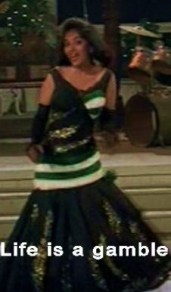

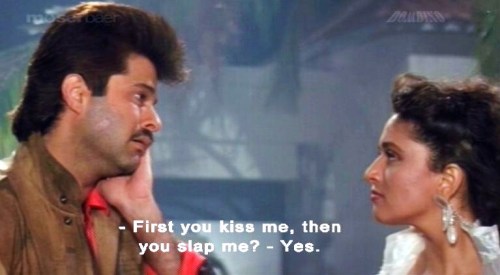





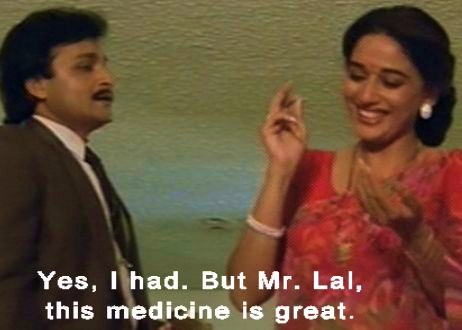
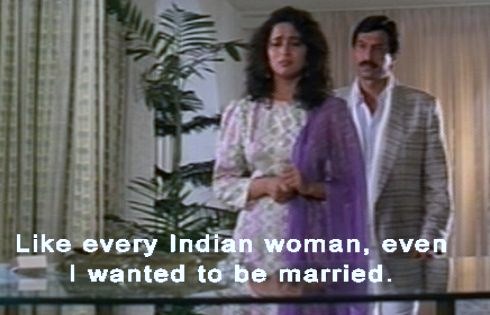









 to find an overdosing Juhi.
to find an overdosing Juhi.



 It starts out with poor little orphan, Shakti Vellu, aka Dayavan (kid version of
It starts out with poor little orphan, Shakti Vellu, aka Dayavan (kid version of 











































 Ajit informs the authorities, Munni’s mom get’s upset at her indiscretion because like all villagers she rears the wrath Jabbar Singh and his bandits.
Ajit informs the authorities, Munni’s mom get’s upset at her indiscretion because like all villagers she rears the wrath Jabbar Singh and his bandits.




















 They scrimp and save to buy a shoe-polish kit and start shining shoes. Kamla finds out about what they have been doing behind her back, beats them and throws them out of the house. John Chacha gives them shelter, but then he is arrested and the kids are left to fend for themselves. When it rains and people don’t get their shoes polished any more, the children are in danger of starving. But Bhola believes that he will never beg anymore but on one rainy night, a man tosses him a coin and he rejects it, but Belu takes it as she is very hungry…(
They scrimp and save to buy a shoe-polish kit and start shining shoes. Kamla finds out about what they have been doing behind her back, beats them and throws them out of the house. John Chacha gives them shelter, but then he is arrested and the kids are left to fend for themselves. When it rains and people don’t get their shoes polished any more, the children are in danger of starving. But Bhola believes that he will never beg anymore but on one rainy night, a man tosses him a coin and he rejects it, but Belu takes it as she is very hungry…(






















